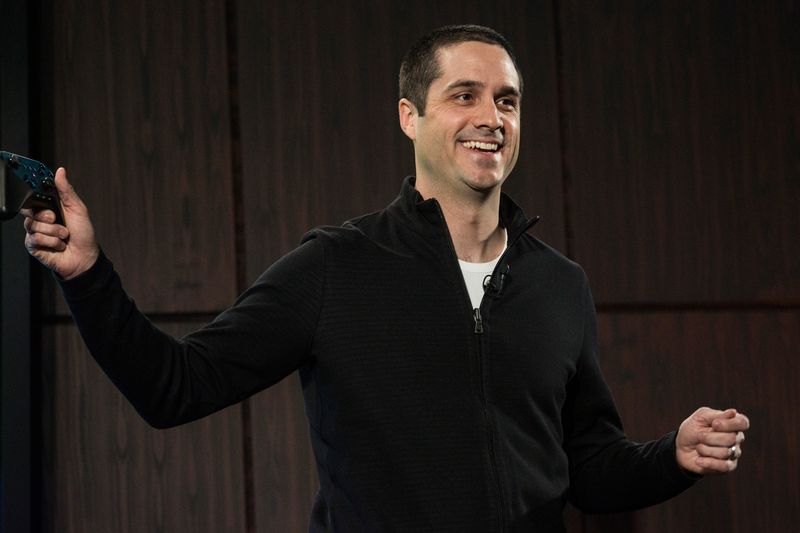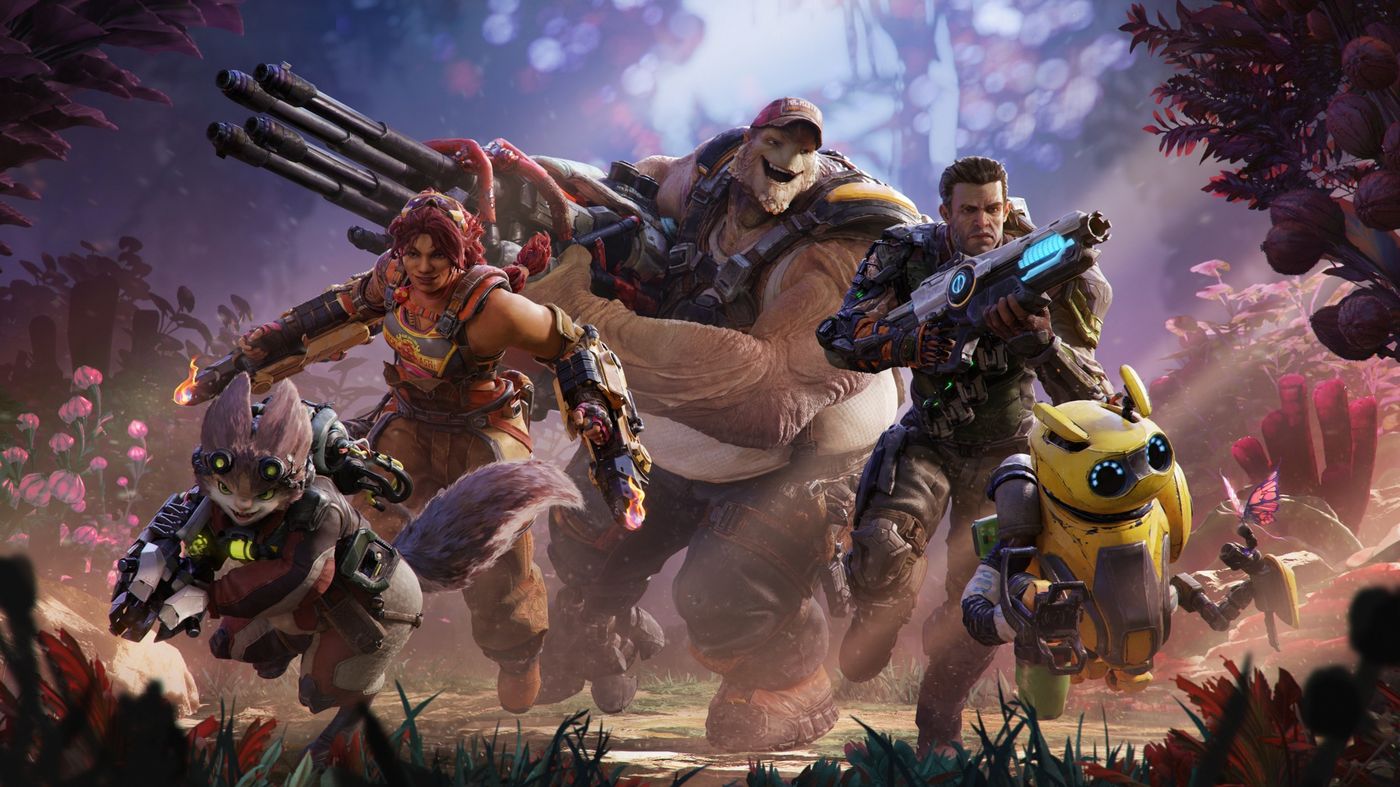
In 2012, Amazon created its own studio for the production of computer games. Jeff Bezos envisioned Amazon Game Studios as a successful and efficient part of the corporate ecosystem. However, over the past eight years, alas, this has not been achieved. How did it happen that the richest company, which succeeded in almost everything, failed to conquer the game development market?
The answer to this question was found by journalist Jason Schreier (author of the book "Blood, Sweat and Pixels"). We publish the main theses of the investigation .
The idea to create your own game development division came directly from the head of Amazon. As part of the Amazon Prime subscription, the games were supposed to sell a subscription to the service and attract gamers to the internet giant's movies, TV series and other products. And in addition, demonstrate the power of cloud services, capable, for example, of supporting online matches for 10,000 users.
For a company famous for its corporate culture, streamlined business processes and unlimited financial resources (according to Schreier's interlocutors, the studio's annual budget reached $ 500 million), the goal is quite feasible.

Mike Frazzini
Mike Frazzini, an experienced Amazon manager who had previously worked his way up from a book division manager to a distribution manager for boxed games, was appointed head of the business. Initially, the studio made mobile games for the Amazon Appstore, but in 2014, after the failure with the Amazon Fire Phone , it began producing games for PC and consoles.
Reason for failure # 1: incompetent leader
It is in the figure of Frazzini that the journalist sees the key cause of the studio's problems. From the standpoint of Amazon's corporate philosophy, if you can successfully manage one area, you can cope with any other. Frazzini is very ambitious: each Amazon game, as he told employees, was supposed to become a “billion dollar franchise,” and the studio's team was replenished with “stars” of gamedev, such as Kim Swift (Portal), Clint Hawking (Far Cry 2), Richard Hilleman and John Smedley.
However, great management experience and dedication to Amazon principles could not replace Frazzini's lack of professional competence. He is not versed in video games and technology, cannot distinguish a cinematic scene from a gameplay video, and most of his comments and ratings are amateur. Instead of immersing himself in the industry or listening to the professionals around him, he grabbed the posts of another commercially successful game and, armed with numbers, tried to make the “perfect game”.
As a result, the studio spent a lot of time and resources on creating several clones of popular games, which were loudly announced and eventually “canned” and canceled.
Almost the only project to see the release was the Overwatch-inspired shooter Crucible.

Crucible
In a release interview, Frazzini proudly stated, "One of the most common things we hear about Crucible from players is that it is unique." But the game received devastating reviews from the press and gamers. A week after the release, the audience of the game on Twitch dropped to 1000 viewers, and literally six months later, in October 2020, Crucible support was discontinued.
Reason for failure # 2: corporate culture
On the one hand, working at Amazon feels like heaven: salaries are double the market average, options soaring in price, flexible development times, and virtually no crunches that are common in the industry.
On the other hand, it turns out that the company's corporate ethics, with its “14 Leadership Principles,” focus on measurable performance and bureaucracy, is destroying the creativity and experimentation inseparable from game development.
Instead of informal discussions, employees had to exchange multi-page documents. Instead of creating innovative games, work on irreplaceable hybrids of all existing mechanics, supposedly the most attractive to gamers. Regardless of the "star" of the developer who came to the company, he had to share the corporate values and vision.
And the employees also had no financial incentive to bring the game to release. Surprisingly, against the background of the industry's usual pegging of salaries and developer bonuses to the release of the game and the reaction of the audience, Amazon paid studio employees only for hours worked. Therefore, no matter how stupid they may be from the top, the developers, holding on to their place, preferred not to get involved in discussions and continued to make products that were needed by the management, but not interesting to the audience.
Reason for failure # 3: ineffective engine
Frazzini decided to ditch Unity and Unreal Engine in favor of his own technology. Since 2014, the studio has been developing an engine called Lumberyard . Based on Crytek, it was supposed to become the standard for all Amazon games and integrate with Amazon Web Services. Considering the infrastructural capacity of the company, from the outside it looked very ambitious and thorough.
Nonetheless, Schreier writes, Lumberyard has become an office-wide horror story. Working on it was sheer torment. The code was processed for so long that programmers were waiting to watch movies and play games, and some of the functionality “required esoteric commands” to work. According to a former employee, the office often said, "Lumberyard is killing this company."
The situation changed only in 2018, when Christoph Hartmann (Bioshock, Mafia), who came to the studio, received permission to switch to Unreal Engine.

New world
What's next?
Despite all the setbacks, including the failure of Crucible, Amazon continues to make games. The closest project is New World , which was planned to be released in August, but was postponed until 2021. There were problems with him, too: a game about survival in a world very similar to America in the 1600s, portraying the indigenous population as enemies and villains. However, here, although not immediately, the studio management heard criticism and revised the concept of the game. According to the employees themselves, the game has good market prospects.
Considering the unequivocal success of Amazon's Twitch and Luna(cloud gaming platform), the company still has a strong chance of gaining its place in the game development market, Schreier concludes. However, this may require a different type of leader who is familiar with the industry. As an example, he cites the online cinema Amazon Prime Video: it was possible to reverse the negative situation there, largely thanks to the arrival of a third-party manager from Hollywood.
In developing games, Amazon tried to make the creative process its own will, and the results are a good lesson for Apple Inc., Facebook Inc. and Google, whose efforts have been equally ineffective so far. Successful video games are a mix of art, entertainment, technology, and very large budgets. Large tech companies have sorted out only the last two so far.
